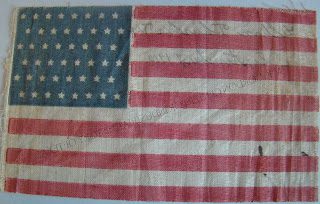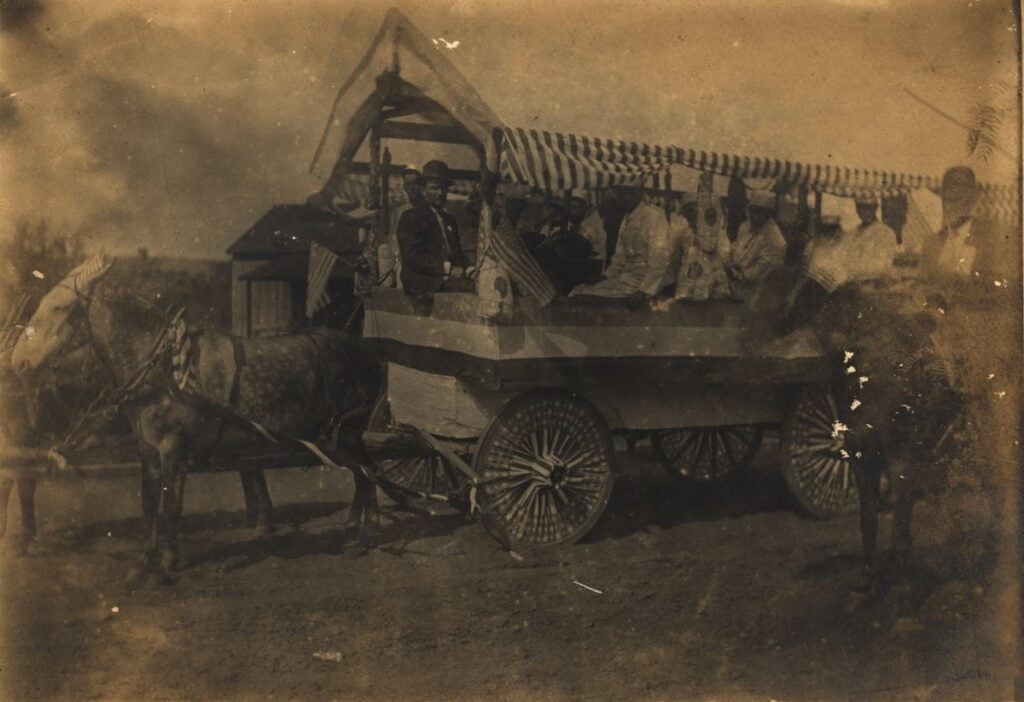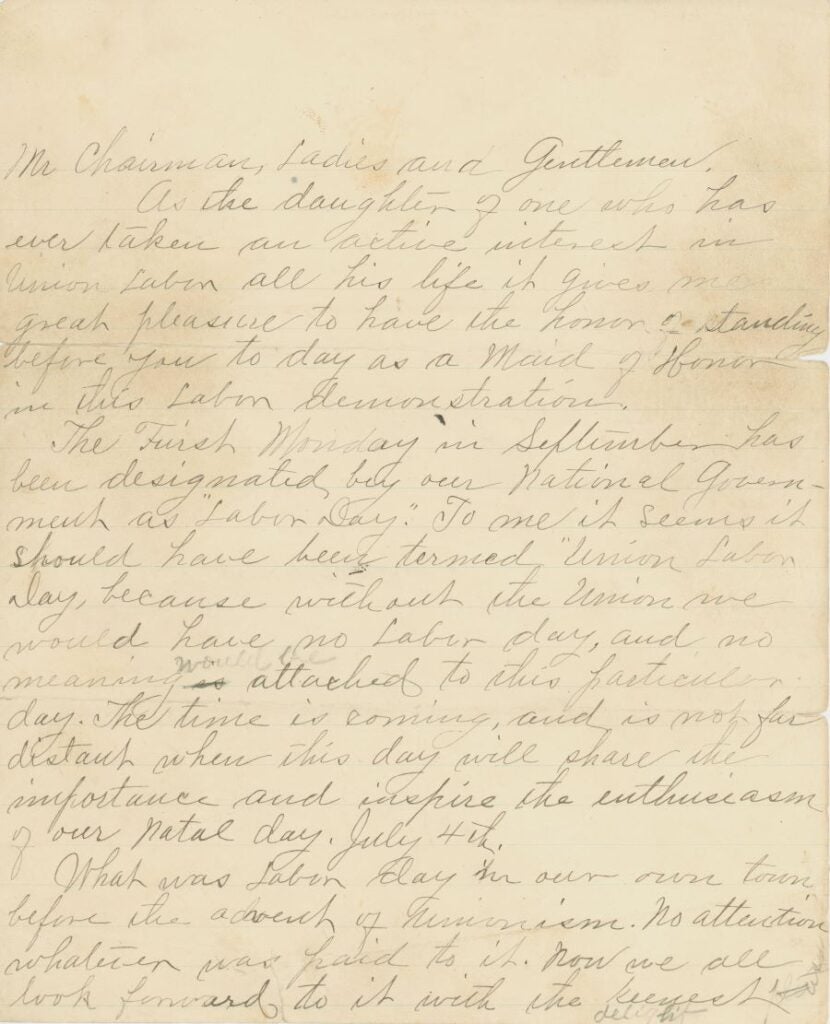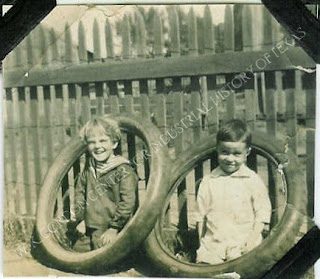Labor Day in Thurber

By Mary Adams
Texas recognized Labor Day on the first Monday of September in 1863. A year later, the federal government made Labor Day a federal holiday on par with Independence Day. The question is, did Thurber embrace Labor Day with the same vigor as they celebrated Independence Day?
Mary Jane Gentry grew up in Thurber, and her Master’s thesis is a beautiful mix of memories and research. In the chapter on recreation, Gentry refers to July 4th and Labor Day as “Holy Days” and lumps her commentary about both celebrations together, saying they “were all day affairs” and giving a description of how the day would go. Several oral interviews of Thurber residents also mention Labor Day celebrations; however, they also lump them together with July 4th. Velma Roberts referred to the parades they had on July 4th and Eugene Turnbow mentions how they have barbeques for both holidays.

These accounts make it seem like both holidays are treated equally. However, the newspaper reports tell a different story. The Texas Miner had multiple detailed articles of the planned July 4th celebrations in 1894 and 1895. However, the same paper in the same years has no mention of planned celebration for Labor Day. The only mention of Labor Day in the August 25th 1894 edition comes in the “Fort Worth Railway Notes” column. It is a short mention that “The Denver Boys are making great preparations to in the Labor Day Procession…” Similarly, the August 1, 1895 edition had one mention in the “Fort Worth Railway Notes” column; this time; it reported that “Labor Day, September 2, will be observed in Fort Worth by the Trades Assembly in great style.” The Texas Mining and Trade Journal continues this trend by merely acknowledging that the holiday happened with one sentence: “Last Monday was Labor Day, and was generally observed all over the state.” “Last Monday was Labor Day, and was generally observed all over the state.” in the “Local and Personal Notes” column of its September 9. 1899, edition.
This lack of attention to the holiday is not surprising considering that for the first seventeen years of Thurber’s existence, R. D. Hunter, president of the Texas & Pacific Coal Company, had worked diligently to keep the town and its industries non-union. However, all this changed in 1903; following Hunter’s death in 1902, a union organizer had “snuck” into town and begun organizing the men. As Labor Day approached and rumors of a union recruiting meeting that would take place in a nearby community on the holiday, W. K. Gordon, superintendent of the mines, realized he needed to do something. He announced that he would open the Hunter Fishing and Boating Club grounds, which are generally off limits to the miners, for a company sponsored picnic. This was too little too late, and by the end of the day, the miners had formed a union and ordered a strike. The company had to recognize the union and negotiate to fill outstanding coal contracts. After 1903, Thurber was a completely unionized community.

The following year, 1904, a large celebration was held to celebrate Labor Day and the first anniversary of the Unions in Thurber. Unlike the July 4th events, the coal company did not host this one. The union took charge of it, and in the half-page article on September 3, 1904, in The Thurber Journal, there was no mention of the Coal Company contributing support to the cause.
Though the memories of Thurber residents indicate that the holidays were celebrated equally the evidence does not support this. The company would have been reluctant to support a holiday that was largely orchestrated by the unions when it was attempting to enforce its anti-union policies.



